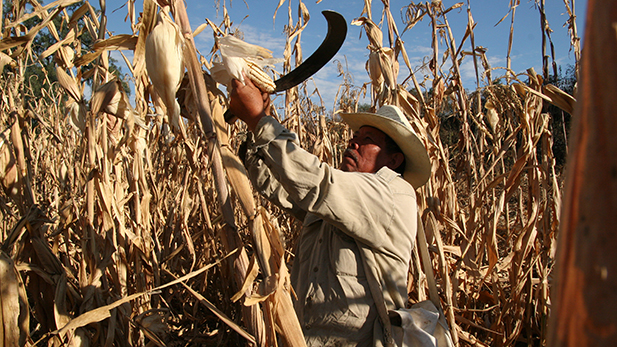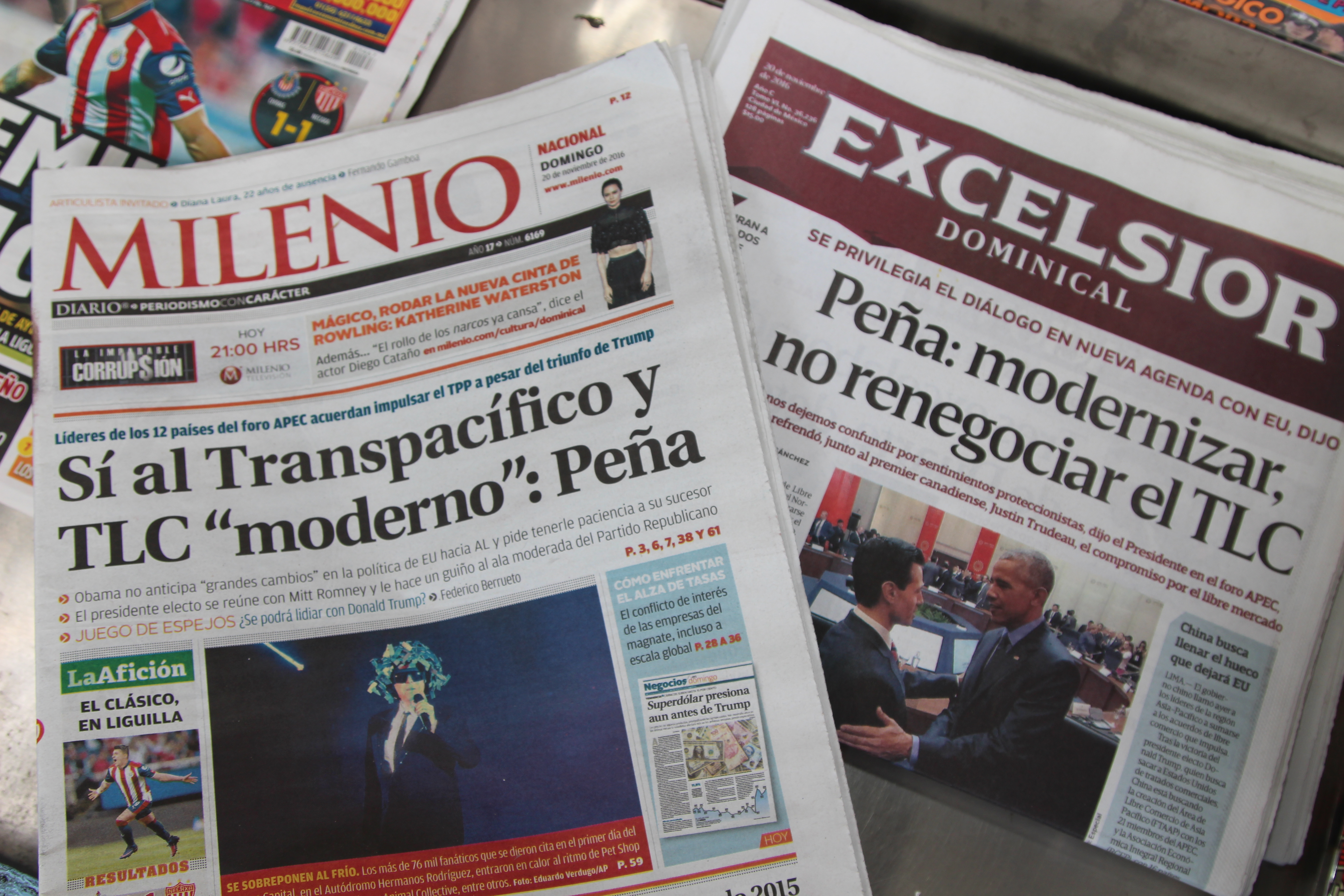 Rafael Avila harvests corn grown from seeds that trace their lineage to the Aztec and Maya cultures. Small-plot farmers like Avila say the Mexican government has ignored small farmers since NAFTA was signed in 1994.
Rafael Avila harvests corn grown from seeds that trace their lineage to the Aztec and Maya cultures. Small-plot farmers like Avila say the Mexican government has ignored small farmers since NAFTA was signed in 1994.
 VIEW LARGER Xochitl Hernández in her commercial greenhouse. She says the end of NAFTA would cripple Mexican exporters, but is hopeful the new U.S. administration will tweak but not kill NAFTA.
VIEW LARGER Xochitl Hernández in her commercial greenhouse. She says the end of NAFTA would cripple Mexican exporters, but is hopeful the new U.S. administration will tweak but not kill NAFTA.
MEXICO CITY — Mexicans are anxious about the future of the North American Free Trade Agreement and how the incoming administration of U.S. President-elect Donald Trump may seek to change or even withdraw from the agreement.
Mexican officials are now speaking with Asian nations about how trade between Mexico and Asia might change in a post-NAFTA era.
Mexican analysts have expressed concern that new investment may slow down due to uncertainty over the agreement.
"It's the chilling effect on investment," said Federico Estévez, a political scientist at Instituto Tecnológico Autónomo de México, a leading Mexican university whose alumni line the halls of power in Mexico. "We've basically turned into an industrial economy on the basis of NAFTA.
NAFTA took effect Jan. 1, 1994 and was aimed at removing many tariffs and integrating major sectors of the economies of Canada, the U.S. and Mexico.
 VIEW LARGER A worker leaves a petrochemical complex in Veracruz. Energy was excluded in NAFTA, but some in the Mexican energy sector have expressed concern that uncertainty over the treaty may translate into side issues that might hinder energy development in Mexico.
VIEW LARGER A worker leaves a petrochemical complex in Veracruz. Energy was excluded in NAFTA, but some in the Mexican energy sector have expressed concern that uncertainty over the treaty may translate into side issues that might hinder energy development in Mexico.
"It's going to have to be Mexico first, more self-reliant," Estévez said. He said Trump's victory is prompting some strident voices in Mexico, particularly on the left, to double down on their own nationalist goals, which include reducing economic dependence on the U.S.
Last month, Bank of Mexico Deputy Governor Guzman Calafell told an audience that that the economic challenges for Mexico are pressing, with high inflation hindering investment and complicating long-term planning.
Uncertainty about NAFTA's future is something that Xochitl Hernández understands. Hernández manages a commercial greenhouse. She and her competitors, who depend on the U.S. export market, are clustered beside the canals of Xochimilco near Mexico City. In the greenhouse, pallets laden with lush, aromatic tropical flowers await pickup in refrigerated trucks.
"Ending NAFTA is an absurd idea," said Hernández, speaking in Spanish. "How can we grow without such an important instrument?" Hernández said she feared having to decipher new rules and price points should the U.S. withdraw from NAFTA.
The Office of the United States Trade Representative said trade between Mexico and the U.S. amounted to $583.6 billion in 2015. Mexico was the second-largest market for U.S. export goods in 2015.
 VIEW LARGER The headline on the left reads, "(Mexican President) Peña Nieto: Yes to the Trans-Pacific and a 'Modern' NAFTA." The headline on the right reads, "Peña: Modernization, Not Renegotiation of NAFTA."
VIEW LARGER The headline on the left reads, "(Mexican President) Peña Nieto: Yes to the Trans-Pacific and a 'Modern' NAFTA." The headline on the right reads, "Peña: Modernization, Not Renegotiation of NAFTA."
Mexican President Enrique Peña Nieto has said publicly that Mexico is willing to modernize NAFTA but not renegotiate the treaty.
If NAFTA collapses, and if tariffs are imposed on Mexican imports in the U.S., security analyst Alejandro Hope said Mexico could retaliate with tariffs on U.S. goods. Hope is a former senior analyst at Mexico's civilian intelligence agency CISEN.
Hope said major Mexican enterprises that are currently invested in U.S. states might face pressure at home to temporarily halt any planned expansion of their U.S. investments.
"This is something that the U.S. public needs to know. Going after Mexico, or harassing Mexico, it's not a free lunch," Hope said.
Mexican Energy Undersecretary César Hernández Ochoa said he is confident Mexico will have an opportunity to make its case for the value of a regionally integrated economy.
"If protectionist measures are done, it's very easy to escalate them," Hernández Ochoa said in his office in Mexico City. "So you retaliate with a different measure. It's not a good state of things."
However, Hernández Ochoa said he fully expects the Mexico-U.S. economic relationship to grow, notwithstanding the rhetoric of the campaign.
Fronteras Desk reporter Lorne Matalon is the 2016-17 Energy Journalism Fellow at the University of Texas at Austin's Energy Institute and KBH Center for Energy, Law and Business.


By submitting your comments, you hereby give AZPM the right to post your comments and potentially use them in any other form of media operated by this institution.